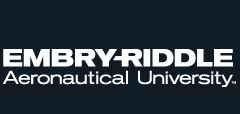Proposal / Submission Type
Peer Reviewed Paper
Location
Richmond, Virginia
Start Date
25-5-2011 3:45 PM
Abstract
Despite increased attention to internal controls and risk assessment, traditional audit approaches do not seem to be highly effective in uncovering the majority of frauds. Less than 20 percent of all occupational frauds are uncovered by auditors. Forensic accounting has recognized the need for automated approaches to fraud analysis yet research has not examined the benefits of forensic continuous auditing as a method to detect and deter corporate fraud. The purpose of this paper is to show how such an approach is possible. A model is presented that supports the acceptance of forensic continuous auditing by auditors and management as an effective tool to support the audit function, meet management’s regulatory objectives, and to combat fraud. An approach to developing such a system is presented.
Scholarly Commons Citation
Kearns, Grover S. and Barker, Katherine J., "Developing a Forensic Continuous Audit Model" (2011). Annual ADFSL Conference on Digital Forensics, Security and Law. 3.
https://commons.erau.edu/adfsl/2011/wednesday/3
Included in
Computer Engineering Commons, Computer Law Commons, Electrical and Computer Engineering Commons, Forensic Science and Technology Commons, Information Security Commons
Developing a Forensic Continuous Audit Model
Richmond, Virginia
Despite increased attention to internal controls and risk assessment, traditional audit approaches do not seem to be highly effective in uncovering the majority of frauds. Less than 20 percent of all occupational frauds are uncovered by auditors. Forensic accounting has recognized the need for automated approaches to fraud analysis yet research has not examined the benefits of forensic continuous auditing as a method to detect and deter corporate fraud. The purpose of this paper is to show how such an approach is possible. A model is presented that supports the acceptance of forensic continuous auditing by auditors and management as an effective tool to support the audit function, meet management’s regulatory objectives, and to combat fraud. An approach to developing such a system is presented.

